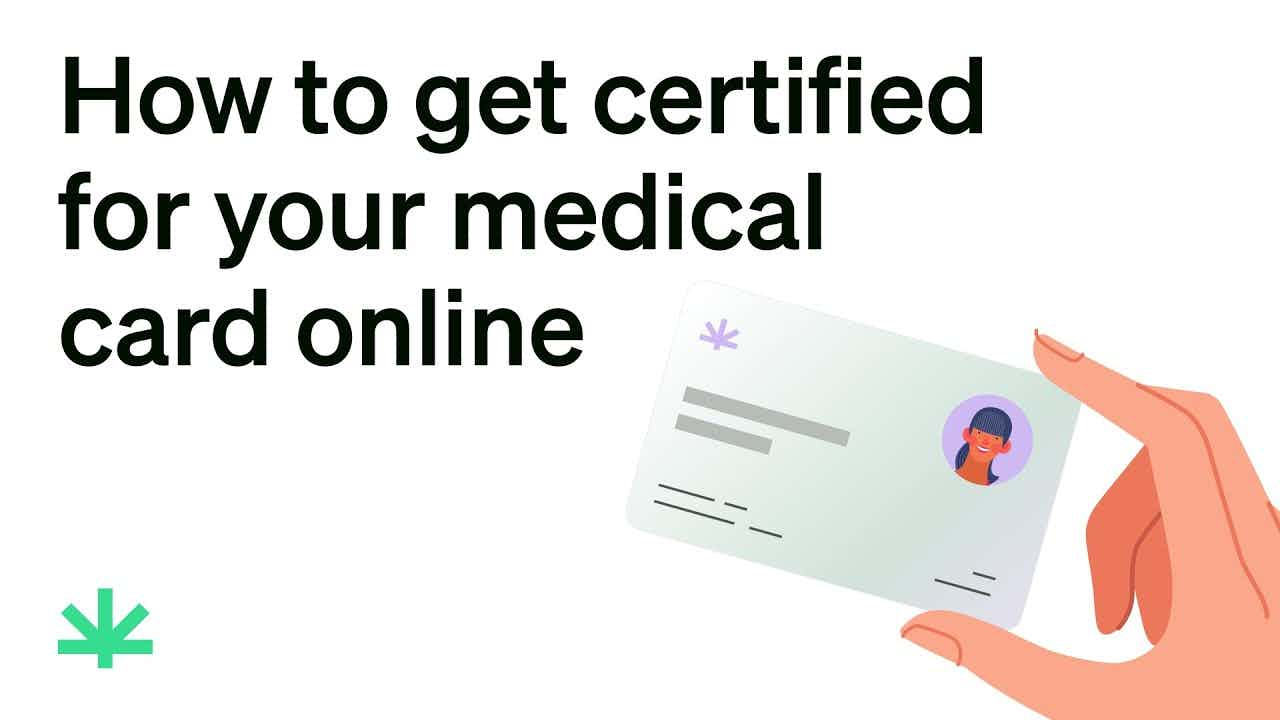Best Care, Best Value
Get Your South Carolina Medical Marijuana Card in Minutes
Quick and Easy Process
Get Approved or Your Money Back
Already a Leafwell patient?
Log in here
State-Specific Steps

1
Register Online With Leafwell
You need to speak to a healthcare provider in person to undergo a medical CBD evaluation; however, completing this process online will soon be possible. Join our waitlist to be notified when we’re open in South Carolina.
Once we’re live, you can register with Leafwell, and we will connect you with a licensed physician.
2
Discuss Medical Marijuana With Your Doctor
You can discuss your medical CBD needs with your doctor during your consultation.
3
Receive Your Certificate From Leafwell
Once approved, you will be certified for medical CBD.
4
Buy Your Medicine
There’s no medical marijuana card program in place in South Carolina yet. When there is, you can use your card to shop at local dispensaries.
Trusted by 400,000+ Patients

Apply for South Carolina
Claim Your Medical Card Today
See a Doctor NowWhat You Need to Know
Apply NowEligibility / Patient
You must be 18 years old or older and a South Carolina resident. Only epilepsy patients (especially those with Lennox-Gastaut or Dravet syndrome) can qualify for medicinal CBD in South Carolina at this time. You must provide proof of identity, proof of South Carolina residency, and medical records.
Caregiver
Should a patient be under 18 or need assistance accessing medical cannabis, a caregiver can be assigned to complete the process on their behalf. A caregiver must be over 21 years old in South Carolina.
Can Minors Qualify?
Yes. Minor patients must have a registered caregiver.
Qualifying Conditions
Only epilepsy patients (especially those with Lennox-Gastaut or Dravet syndrome) can qualify for medicinal CBD, and there is no minimum age limit on this.
Legal Topics
Certified patients may possess CBD oil containing a maximum of 0.9% THC and a minimum of 15% CBD.
There is no specific limit to the amount of low-THC, CBD-rich cannabis oil a qualifying patient or their caregiver may possess.
Caregivers
Medical marijuana patients in South Carolina can have a caregiver. Those caring for minors (a parent or another official caregiver) may be allowed to administer CBD oil to their child.
There is no ID card system for caregivers in South Carolina.
Reciprocity
There is no medical marijuana identification card program in South Carolina, so there is no reciprocity with other states.
South Carolina does not recognize other states’ medical marijuana programs. The following states do offer reciprocity:
- Arizona
- Alaska ^
- California
- Colorado ^
- Connecticut ^
- Delaware ^
- Guam
- Hawaii *
- Illinois ^
- Maine
- Maryland ^ (as of July 2023)
- Massachusetts
- Michigan (at the dispensary’s discretion)
- Missouri ^
- Montana
- Nevada
- New Hampshire
- New Jersey *
- New Mexico *(recreational cannabis is legal in NM)
- New York ^
- Oklahoma *
- Oregon ^
- Pennsylvania (minors only)
- Puerto Rico
- Rhode Island
- U.S. Virgin Islands *
- Utah * (max. 45 days, after which the patient must apply for a Utah MMJ card)
- Vermont ^
- Virginia ^
- Washington ^
- Washington, D.C.
States marked with * require visitors to complete a visiting patient application for their stay.
States marked with ^ have adult use programs but do not accept out-of-state cards.
FAQs
How much does a South Carolina Medical Marijuana certificate and card cost?
Cannabis is illegal in South Carolina. There is a low-THC, CBD-only program, but there is no medical card program. Only consulting physicians can certify patients for medicinal CBD, and only for epilepsy patients who have not responded to traditional treatments.
What medical conditions qualify for a Medical Marijuana Card in South Carolina?
There is no medical marijuana program or ID card system in South Carolina. However, Julian’s Law (S1035) allows those with severe epilepsy to use low-THC CBD oil (THC not exceeding 9% and at least 15% CBD).
What do I need to know about applying for my Medical Cannabis Card in South Carolina online?
There is no medical card identification system in place in South Carolina for low-THC, CBD oil.
Only consulting physicians can certify a patient for medical CBD, and it’s only for patients with epilepsy who have not responded to other, more conventional treatments.
How old do I have to be to apply for a Medical Marijuana Card in South Carolina?
Only epilepsy patients (especially those with Lennox-Gastaut or Dravet syndrome) can qualify for medicinal CBD in South Carolina, and there is no minimum age limit on this.
Can I be/have a caregiver for a medical marijuana patient in South Carolina?
Those who are caring for minors (a parent or another official caregiver) may be allowed to administer their child CBD oil, but there is no ID card system in place for caregivers in South Carolina.
How do I apply for the state cannabis program in South Carolina?
There is no state centralized medical cannabis program in South Carolina. No application is necessary – it’s purely between a patient and their physician.